Retro Replay Review
Gameplay
Ihatovo Monogatari embraces a leisurely pace that encourages exploration over combat. You guide your avatar through a top-down, console RPG–inspired landscape, where every corner of Ihatovo holds a new character to meet or a hidden item to collect. There are no random encounters or battle mechanics—progression is driven entirely by dialogue, discovery, and the clever use of inventory items.
(HEY YOU!! We hope you enjoy! We try not to run ads. So basically, this is a very expensive hobby running this site. Please consider joining us for updates, forums, and more. Network w/ us to make some cash or friends while retro gaming, and you can win some free retro games for posting. Okay, carry on 👍)
The core objective—to recover seven missing notebooks by Kenji Miyazawa—gives each area a clear purpose. As you traverse rolling fields, misty hills, and quaint villages, you’ll inspect objects and trade with NPCs to uncover clues. Although you won’t solve traditional puzzles, combining and applying items in the proper context offers a satisfying challenge, rewarding careful observation and patience.
Conversations are the true engine of progression. The game tracks which topics you’ve discussed and dynamically adjusts the environment based on your discoveries. Friendly villagers offer hints, and recurring characters develop over time, reacting to your successes and missteps. This conversational structure keeps the journey fresh, even though there’s no combat to break up the dialogue.
Graphics
The visual design of Ihatovo Monogatari is a loving tribute to classic 16-bit and early 32-bit aesthetics. Sprites are hand-drawn with a gentle, watercolor-like palette that perfectly captures the serene beauty of Kenji Miyazawa’s fictive landscape. Rolling clouds, swaying trees, and subtle weather effects add atmosphere without overwhelming the screen.
Each region of Ihatovo has a distinct look: the Fire Stone chapter features smoldering volcanic rock formations; the pastoral countryside showcases lush, green fields dotted with wildflowers. Backgrounds often tell their own stories—abandoned shrines, mountain vistas, and fishing boats bobbing on misty lakes hint at untold legends begging to be discovered.
The interface is clean and unobtrusive. Dialog windows frame text in an elegant typeface, and icons for inventory items are both charming and clear. Transition animations—such as opening a chest or flipping through pages of a recovered notebook—are brief but polished, reinforcing the game’s hand-crafted feel.
Story
Rooted in the imaginative legacy of Japanese author Kenji Miyazawa, Ihatovo Monogatari weaves original narrative threads into the fabric of his famed tales. You arrive in Ihatovo as an outsider with a singular mission: track down seven scattered notebooks that Miyazawa once penned, each tied to a fable such as The Fire Stone. Recovering these pages lets you restore lost stories and unveil thematic echoes of hope, nature, and human kindness.
The narrative unfolds episodically. As you return each notebook to Miyazawa’s old study, you unlock beautifully narrated vignettes that blend text and illustration. These interludes deepen your understanding of the land’s myths and the author’s philosophical underpinnings, making each chapter feel like both a reward and a revelation.
Dialogue is the game’s narrative backbone, and writerly care shines through every line. Characters are idiosyncratic—some speak in riddles, others with earnest simplicity—yet all feel authentic to the world’s folkloric roots. The story’s emotional peaks arrive not from epic battles but from quiet moments of connection, such as comforting a worried farmer or listening to a grandmother recount a childhood memory.
Overall Experience
Ihatovo Monogatari stands out as a tranquil, dialogue-driven adventure that eschews traditional JRPG tropes. Its strength lies in world-building and storytelling: by removing combat and heavy puzzle mechanics, the game invites players to fully immerse themselves in Miyazawa’s poetic realm. The steady pace may feel slow to those seeking action, but for fans of narrative exploration, it offers a deeply rewarding journey.
The game’s emphasis on conversations and item usage creates a gentle but engaging loop. You’ll find yourself pausing to admire pixel-perfect sunsets or revisiting an earlier village after gaining new insights, which speaks to the developers’ success in crafting a living world. Though the main quest remains linear—you know you need all seven notebooks—the side interactions and optional exchanges ensure there’s always something new to discover.
Whether you’re a longtime admirer of Kenji Miyazawa’s work or simply in search of an unhurried adventure, Ihatovo Monogatari delivers a memorable experience. Its combination of serene graphics, heartfelt storytelling, and exploratory gameplay makes it a strong recommendation for players craving an atmosphere of wonder and reflection over fast-paced action.
 Retro Replay Retro Replay gaming reviews, news, emulation, geek stuff and more!
Retro Replay Retro Replay gaming reviews, news, emulation, geek stuff and more!
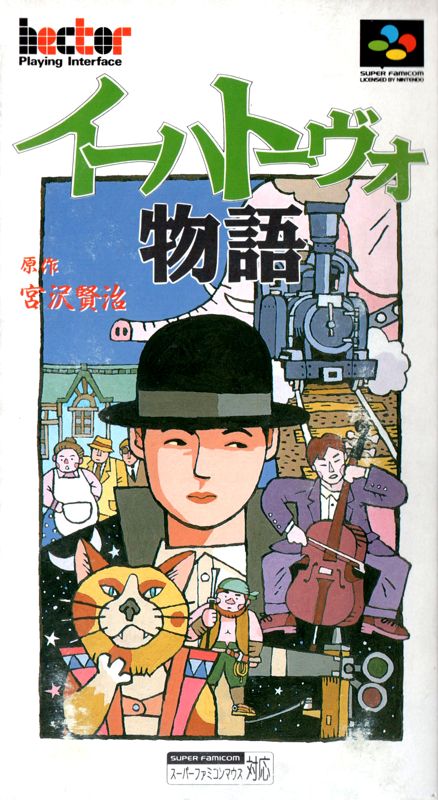
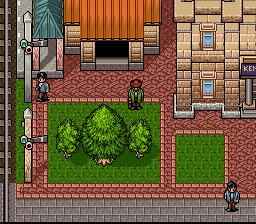
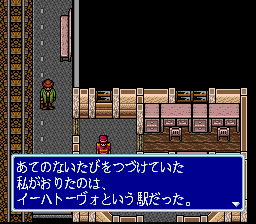
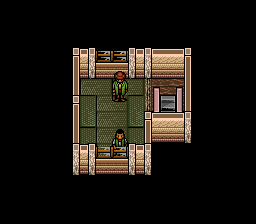
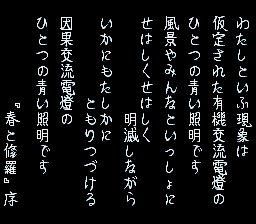
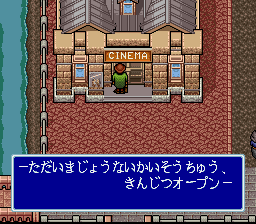



Reviews
There are no reviews yet.